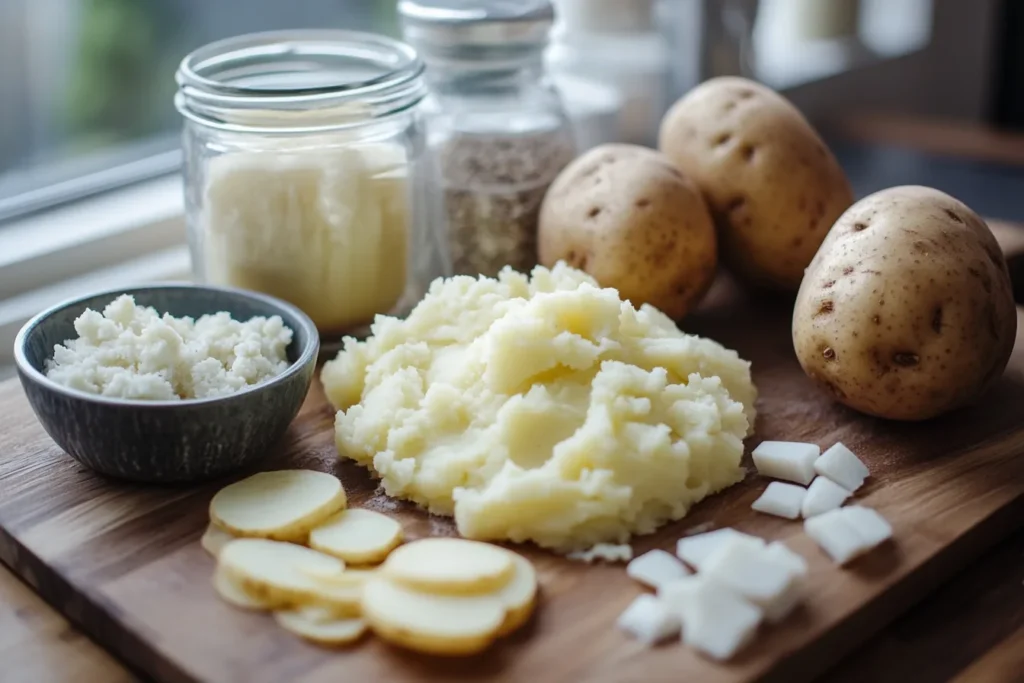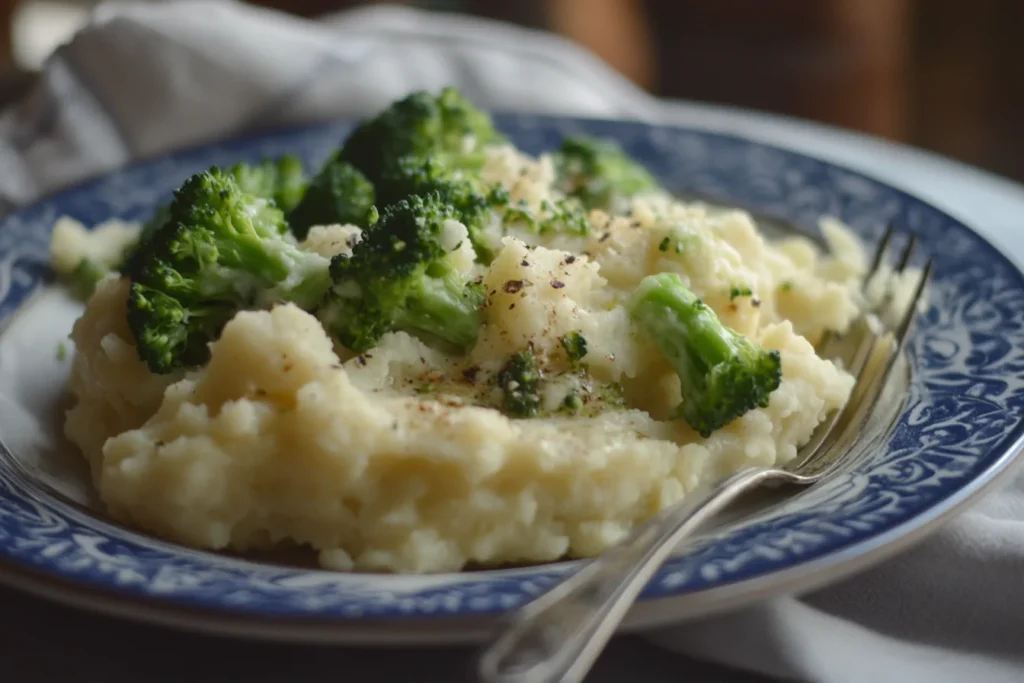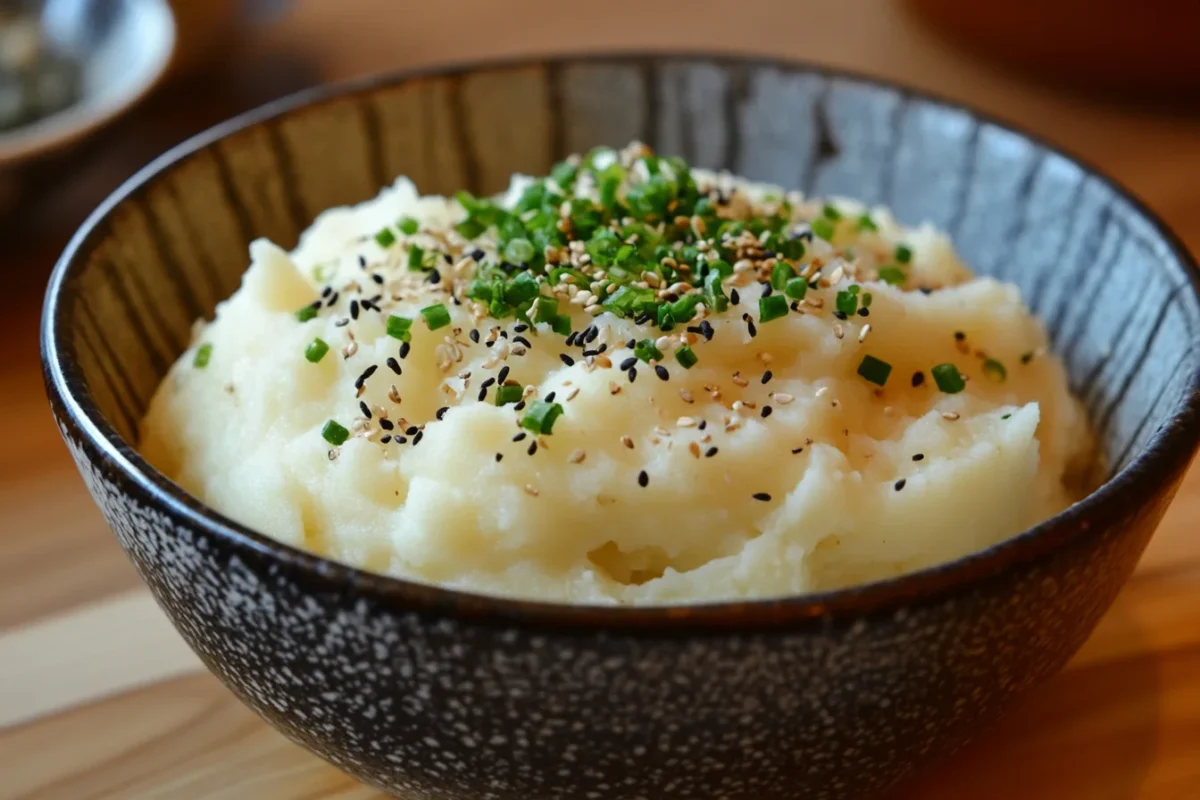Introduction
Mashed potatoes—creamy, comforting, and downright delicious—are a staple at dinner tables worldwide. But beyond their irresistible taste, what nutritional value do they offer? Are they a friend to your health, or just an indulgence? This article takes a deep dive into the nutritional profile of mashed potatoes, breaking down their macro- and micronutrient content, exploring health benefits, and examining their role in a balanced diet. Whether you’re looking for healthier ways to prepare them or curious about their impact on weight management, you’ll find all the answers here.
Understanding Mashed Potatoes Nutrition
Overview of Mashed Potatoes
Ah, mashed potatoes—one of the most beloved comfort foods. These soft, fluffy clouds of goodness have a history as rich as their texture. Originally from South America, potatoes quickly became a global culinary sensation. Today, mashed potatoes are enjoyed in countless variations, from classic recipes to gourmet creations with unique twists.
Typically, mashed potatoes are made by boiling potatoes, mashing them until smooth, and adding ingredients like butter, milk, or cream. But how does this process affect their nutritional value? And can we truly call them healthy? Let’s dive in.
Importance of Nutritional Awareness
While mashed potatoes are delicious, their preparation methods and added ingredients can significantly alter their health benefits. Knowing what’s inside this favorite dish helps us make informed choices. For instance, plain mashed potatoes without excessive butter or cream can be a good source of vitamins like B6 and minerals like potassium. However, loaded versions can turn this wholesome dish into a calorie-dense indulgence.
Understanding the nutritional content allows us to strike the perfect balance—enjoying our favorite comfort food while maintaining a healthy lifestyle. So, let’s unravel the story of mashed potatoes nutrition and discover how to savor them guilt-free!
Nutritional Composition of Mashed Potatoes
Macronutrient Profile
Mashed potatoes are a treasure trove of essential macronutrients, making them a staple in many diets. However, their nutritional profile largely depends on preparation methods and added ingredients.
Carbohydrates

Carbohydrates are the star of mashed potatoes, providing a quick and steady energy source. A cup of plain mashed potatoes typically contains about 35 grams of carbohydrates, primarily in the form of starch. While this might raise eyebrows for those on low-carb diets, potatoes also contain dietary fiber, which aids digestion and helps maintain stable blood sugar levels. However, adding heavy cream or sugar-laden toppings can significantly alter this balance, so keep an eye on what’s mixed in.
Proteins
Though not a high-protein food, mashed potatoes offer around 3-4 grams of protein per cup. This may not seem like much, but every bit counts when you’re piecing together a well-rounded diet. To boost their protein content, some people mix in Greek yogurt or a dollop of cottage cheese, which also enhances their creaminess without added fats.
Fats
Mashed potatoes themselves are virtually fat-free—until you add butter, cream, or cheese. A basic serving without extras contains less than 1 gram of fat. However, when prepared traditionally with butter and cream, the fat content can skyrocket, potentially exceeding 10 grams per serving. Switching to healthier alternatives like olive oil or almond milk keeps them flavorful while cutting back on unhealthy saturated fats.
Micronutrient Content
Beyond macronutrients, mashed potatoes pack a punch with an impressive array of vitamins and minerals. These micronutrients are essential for overall health, supporting everything from your immune system to your nervous system.
Vitamins
Potatoes are particularly rich in vitamin C, a powerful antioxidant that boosts immunity and aids in skin health. A single serving of mashed potatoes can provide up to 20% of your daily vitamin C needs. Additionally, potatoes contain B vitamins like B6 and B9 (folate), which are crucial for energy production and brain health.
Minerals
One of the standout minerals in mashed potatoes is potassium, a key player in maintaining healthy blood pressure and proper muscle function. With about 600 milligrams per serving, potatoes are among the top plant-based sources of this mineral. They also contain magnesium, phosphorus, and small amounts of iron, further enhancing their nutritional profile.
Health Benefits of Mashed Potatoes
Energy Provision
Mashed potatoes are an excellent source of energy, thanks to their high carbohydrate content. For individuals with active lifestyles or athletes requiring a quick energy boost, mashed potatoes are a go-to option. The starch in potatoes provides a slow, steady release of energy, ensuring you stay fueled for longer. Unlike refined carbs, which lead to quick spikes and drops in blood sugar levels, potatoes offer a more stable and sustainable energy source.
For an added nutrient boost, leaving the skins on during preparation increases the fiber content, further helping to regulate blood sugar levels. This makes them not just a comfort food but a functional one as well.

Digestive Health
Ever wondered how mashed potatoes can benefit your gut? Dietary fiber, present in potatoes (especially if you keep the skins), plays a crucial role in promoting digestive health. Fiber helps prevent constipation, supports a healthy gut microbiome, and aids in maintaining regular bowel movements. While mashed potatoes are lower in fiber than whole boiled potatoes, they still contribute to your daily intake, especially when paired with fibrous vegetables or lean proteins.
Additionally, the resistant starch found in cooled mashed potatoes acts as a prebiotic, feeding beneficial gut bacteria and enhancing overall gut health. This subtle yet powerful property makes mashed potatoes a great choice for supporting digestive wellness.
Immune Support
Mashed potatoes shine as a comfort food that also supports immune health. Packed with vitamin C, a single serving can significantly contribute to your daily requirements. This potent antioxidant not only boosts your immune system but also helps fight oxidative stress, which can damage cells and accelerate aging.
What’s more, the naturally occurring antioxidants in potatoes—such as polyphenols—work in tandem with vitamin C to fortify your body’s defenses. For those looking to enhance their immune system naturally, mashed potatoes (prepared healthily) are a delicious and practical choice.
Potential Health Concerns
Caloric Content and Weight Management
Mashed potatoes are a satisfying and nutrient-rich food, but their calorie content can vary widely based on preparation methods. A plain serving typically contains about 120-150 calories per cup. However, when mixed with butter, cream, or cheese, the calorie count can easily double or even triple.
For individuals mindful of their caloric intake, moderation is key. Opting for low-fat dairy or plant-based alternatives can reduce calories while maintaining that creamy, indulgent texture. Pairing mashed potatoes with high-fiber vegetables or lean proteins can also create a balanced meal that satisfies hunger without overloading on calories.
Glycemic Index and Blood Sugar Levels
One of the most debated aspects of mashed potatoes is their glycemic index (GI)—a measure of how quickly a food raises blood sugar levels. Potatoes, particularly when mashed, tend to have a high GI, which can cause blood sugar spikes. This may be a concern for individuals with diabetes or those managing insulin sensitivity.
However, there’s good news! Pairing mashed potatoes with foods rich in protein or healthy fats can help slow digestion and mitigate blood sugar fluctuations. Cooling mashed potatoes before reheating them can also increase their resistant starch content, which lowers their glycemic impact. So, mashed potatoes aren’t off-limits—they just need thoughtful preparation and pairing.
Considerations for Dietary Restrictions
Mashed potatoes are naturally gluten-free, making them a suitable choice for those with gluten sensitivities or celiac disease. However, added ingredients like gravies, pre-packaged mixes, or certain flavorings might introduce gluten or other allergens. Always check labels and stick to simple, whole-food ingredients for the best results.
Enhancing the Nutritional Value
Healthier Preparation Methods
The way mashed potatoes are prepared can significantly impact their nutritional value. Small tweaks in ingredients and cooking techniques can transform them from a calorie-laden indulgence into a healthier dish without compromising taste.
Ingredient Modifications
Replacing heavy cream with alternatives like low-fat milk, unsweetened almond milk, or Greek yogurt is an excellent way to cut down on saturated fat and calories while maintaining creaminess. For extra flavor without extra fat, try adding herbs such as parsley, chives, or dill. Garlic and a pinch of nutmeg can also elevate the dish without relying on butter or salt.
To further boost the nutritional profile, consider mixing in mashed cauliflower or sweet potatoes. These options add vitamins and dietary fiber while reducing the overall carbohydrate content, making the dish even more versatile.

Cooking Techniques
Choosing the right cooking method is crucial. Boiling potatoes with their skins on helps preserve vitamins and minerals, especially potassium and vitamin C, which can leach out during cooking. Once boiled, you can mash them with their skins for added fiber and nutrients.
Steaming is another excellent method, as it minimizes nutrient loss compared to boiling. Using tools like a food processor or hand masher ensures a smooth texture without requiring excessive butter or cream.
Frequently Asked Questions (FAQs)
What is the nutritional value of mashed potatoes?
Mashed potatoes are a nutrient-dense comfort food that offers a range of essential macronutrients and micronutrients. A standard serving (1 cup) of plain mashed potatoes provides approximately:
- Calories: 120-150
- Carbohydrates: 35 grams (mainly starch)
- Protein: 3-4 grams
- Fat: Less than 1 gram (plain preparation)
- Potassium: Around 600 milligrams
- Vitamin C: 15-20% of the daily recommended intake
These values can vary based on preparation. Adding butter or cream increases the calorie and fat content, while keeping the skins on enhances fiber and nutrient levels.
Are mashed potatoes healthy to eat?
Yes, mashed potatoes can be a healthy addition to your diet, especially when prepared with minimal additives. They are a natural source of energy, rich in vitamin C, potassium, and other essential nutrients. Mashed potatoes are also gluten-free and versatile, making them suitable for a variety of diets.
However, their healthfulness depends largely on preparation. Opting for low-fat milk, reducing butter, and incorporating high-fiber alternatives like cauliflower or sweet potatoes can make mashed potatoes even more beneficial. Moderation is key to enjoying their creamy goodness without overloading on calories.
How many calories are in 1 cup of traditional homemade mashed potatoes?
A cup of traditional homemade mashed potatoes contains about 200-250 calories. This count includes typical ingredients like butter and milk. Plain mashed potatoes made without extras are lower in calories, averaging around 120-150 calories per cup. Adjustments to ingredients—such as using plant-based milk or reducing butter—can lower the calorie count while retaining the flavor.
Are mashed potatoes healthier than rice?
Both mashed potatoes and rice have their nutritional merits, but the “healthier” option depends on your dietary needs. Mashed potatoes typically contain more vitamins (like vitamin C and B6) and potassium, while rice, particularly brown rice, is a better source of dietary fiber.
If you’re looking for fewer calories, plain mashed potatoes have an edge over white rice. However, mashed potatoes also have a higher glycemic index, meaning they can raise blood sugar levels more quickly than rice. For a balanced diet, consider pairing either option with vegetables and lean proteins.
Summarizing Mashed Potatoes’ Nutritional Impact
Recap of Key Nutritional Benefits
Mashed potatoes, a comforting and versatile dish, are more than just a tasty side. They’re packed with essential nutrients like potassium, vitamin C, and a healthy dose of carbohydrates to keep you energized. Their simplicity and ability to adapt to healthier preparation methods make them a staple for people looking to enjoy wholesome, nutrient-rich meals.
When prepared with minimal butter or cream and paired with lean proteins or fibrous vegetables, mashed potatoes can be a well-balanced addition to your diet. The inclusion of fiber, especially when the potato skins are left on, enhances their digestive benefits, while resistant starch in cooled mashed potatoes supports gut health.
Final Thoughts on Incorporating Mashed Potatoes
Whether you’re a traditionalist who loves creamy, buttery mashed potatoes or a health enthusiast experimenting with alternative ingredients, this dish can fit seamlessly into your diet. By making mindful choices in preparation—like choosing low-fat milk, adding nutrient-dense mix-ins, and managing portion sizes—you can enjoy mashed potatoes guilt-free.
As with any food, balance and moderation are crucial. Understanding the nutrition of mashed potatoes equips you to make informed decisions, ensuring that this beloved comfort food remains both delicious and healthful.

